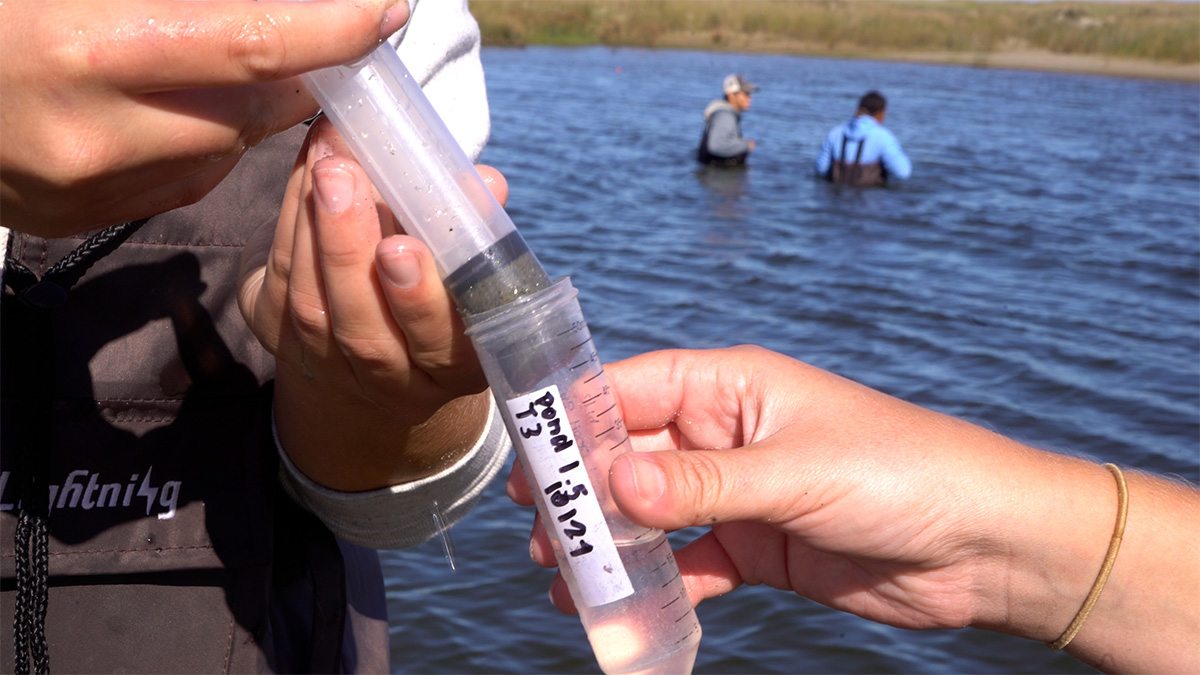A classroom on the Core Sound
More than a dozen Tar Heels spent last semester on the coast taking classes and conducting real-world research on a new issue impacting the barrier islands of the Cape Lookout National Seashore.

Instead of strolling through Polk Place to get to class last semester, Carolina junior Jillian Daly and her classmates walked over a sand dune.
Daly and more than a dozen other undergraduates spent the fall semester conducting research and taking classes along the coast at the UNC Institute for the Environment’s Morehead City Field Site.
“It is so exciting to be able to do this as an undergraduate,” Daly said. “I feel like a lot of times in school, you’re working on theoretical problems, how to solve it, and I’m not as invested in that. This is something where we all come out here, and we’re dedicated to what we’re doing.”
In addition to taking classes, the students spent the semester working on a real-world research question.
They worked with the National Park Service to study a new issue impacting the barrier islands of the Cape Lookout National Seashore. Together with faculty from the UNC Institute of Marine Sciences, the students studied several ponds created by overwash from Hurricane Dorian in 2019 to help the park service understand the ponds’ ecology and make appropriate plans in the years ahead.
Learn more about the Institute for the Environment’s field sites




